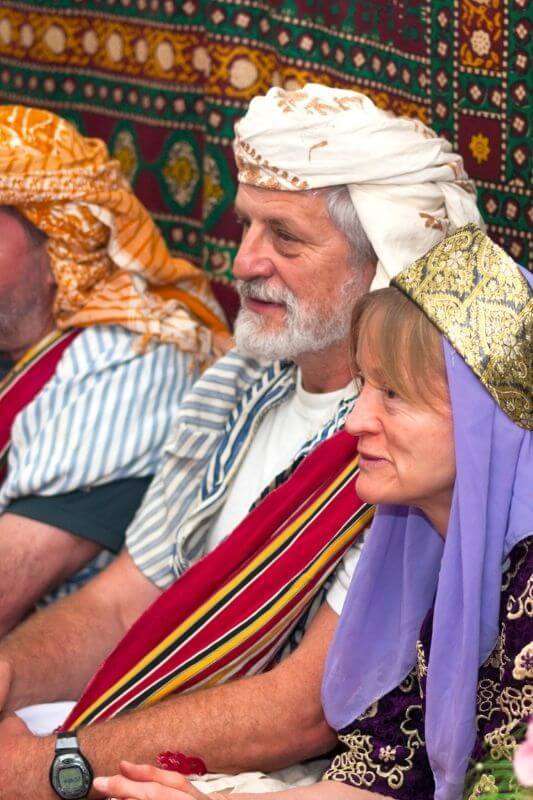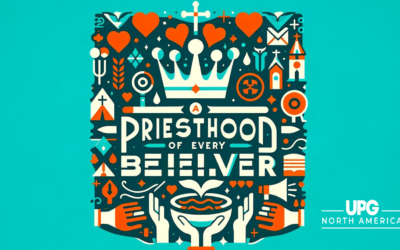Unlocking Effective Cross-Cultural Ministry: Understanding Your Target People Group
In the realm of cross-cultural ministry and evangelism, one of the most crucial steps is developing a deep understanding of the people group you aim to reach. This knowledge forms the foundation for building meaningful relationships, communicating the Gospel effectively, and ultimately seeing lives transformed by the power of Christ.
The first step in this process is clearly defining your target segment. This could be a specific ethnic group, like Kurds or Gujaratis, or a broader category like “Arabs in the diaspora.” Once you’ve established your focus, it’s time to dive deep into learning about these people – their story, their worldview, and their current realities.
Understanding their story helps us better communicate God’s story in a way that resonates within their cultural context. This involves exploring three key questions:
- Who are the people?
- What are they like?
- How can they be reached?
To answer these questions, start with thorough research. Leverage existing ethnographic reports, cultural and religious profiles, and community websites. If your focus is on diaspora communities, investigate the causes of their migration. Was it a “push” factor, like fleeing conflict (e.g., Afghans), or a “pull” factor, such as pursuing educational or economic opportunities (e.g., many South Asian immigrants)? Understanding these dynamics provides crucial insight into their current mindset and needs.
For diaspora ministry, it’s also important to consider the effects of chain migration (where immigrants follow family or community connections to specific locations) and the varying levels of cultural assimilation versus preservation. Some groups, like Thai immigrants, tend to assimilate quickly, while others, like Chinese communities in major cities, maintain distinct cultural enclaves.
Don’t overlook the impact of trauma, even among those who migrated voluntarily. All immigrants experience some level of loss and adjustment, which can create openings for trauma healing ministries as a bridge to sharing the Gospel.
Once you’ve built a knowledge base, the next crucial step is to locate and engage with members of your target community. Here are some practical tips:
- For Muslim outreach, use resources like salatomatic.com to find mosques and cultural centers, and zabihah.com to locate halal markets and restaurants.
- Join community Facebook groups to learn about events and gatherings.
- Use Google Maps reviews to find specific language services at places of worship.
- Attend cultural festivals and community events.
The goal is to move from learning about the community to learning directly from its members. This involves conducting informal interviews with community leaders, religious figures, and everyday individuals. While you won’t explicitly frame it as an interview, your conversations should aim to uncover key aspects of their worldview:
- What do they believe is true?
- What do they consider good?
- What do they believe about their purpose in life?
- What are their views on how the world will end?
- What do they believe has gone wrong in the world?
- Where do they find hope?
To navigate these deep topics naturally, focus your initial conversations around relatable themes, all conveniently starting with “F”:
- Food
- Family
- Friends
- Festivals
- Faith
- Future
The “future” category can be particularly insightful, as it often reveals what people view as their ultimate “salvation” or hope. For example, many Kurds deeply desire their own nation-state – understanding this allows you to draw parallels to the Christian concept of citizenship in God’s eternal Kingdom.
When engaging in these conversations, master the art of asking good questions. Use a combination of:
- Grand tour questions: Broad, open-ended inquiries (e.g., “What does it mean to be Kurdish?”)
- Mini-tour questions: Follow-ups on specific mentioned topics
- Experience questions: Asking about personal encounters with the discussed concepts
- Explanatory questions: Seeking clarification on unfamiliar terms or ideas
Avoid yes/no questions, and be sensitive to potentially traumatic topics. The goal is to create a natural flow of conversation that allows you to gain deep insights into the person’s worldview and experiences.
As you gather information through research and personal interactions, look for patterns and connections. What common themes emerge? How do their beliefs and experiences align with or diverge from the Gospel message? Where are there natural bridge points for introducing Christ?
Remember, the ultimate purpose of this in-depth cultural learning is not merely academic. It’s about equipping ourselves to share the love of Christ in ways that truly connect with the hearts and minds of the people we’re called to reach. By understanding their story – their joys, their pain, their hopes, and their fears – we position ourselves to present the Gospel not as a foreign concept, but as the fulfillment of their deepest longings.
As we engage in cross-cultural ministry, may we approach it with humility, genuine love for the people, and a commitment to presenting Christ in ways that resonate within their cultural framework. Through diligent study, intentional relationship-building, and the guidance of the Holy Spirit, we can effectively bridge cultural gaps and see God’s Kingdom expand among all peoples.




